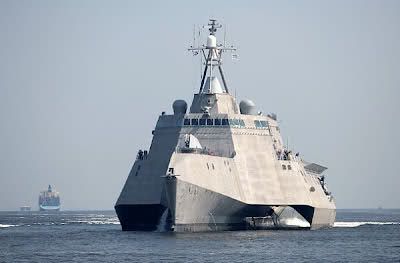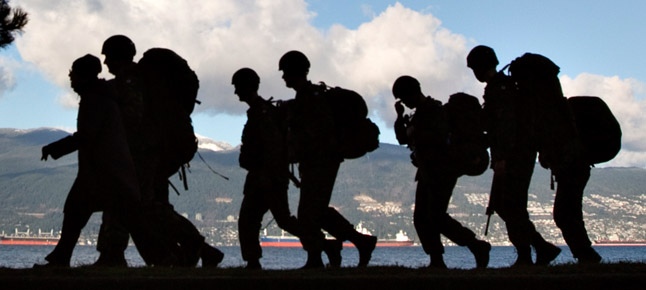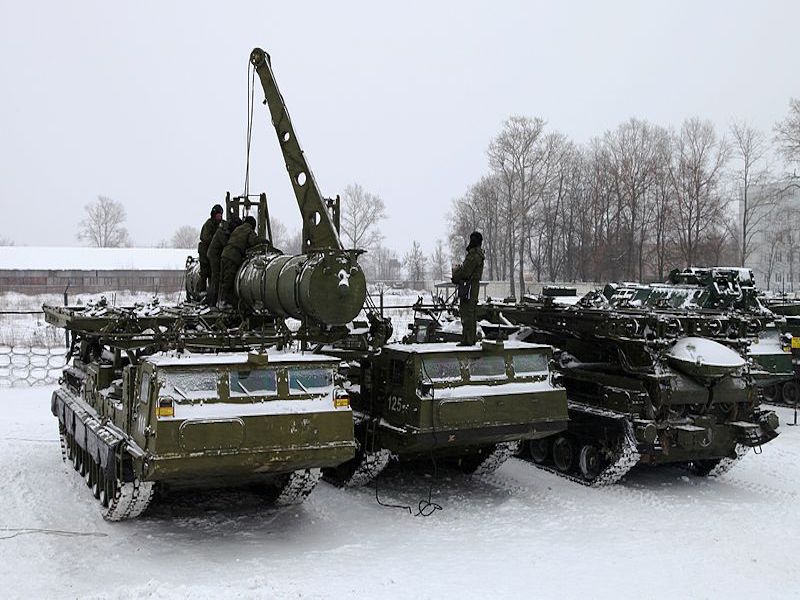As part of the austerity drive of Britain’s coalition government, the military expenditures have decreased every year since 2010. To meet these cuts, all three branches of the Armed Forces have made plans to reduce their numbers, with the Royal Army facing the largest reduction. These cuts have received significant criticism, with experts pointing out that they leave the army smaller than at any time since the Napoleonic Wars.
The Strategic Defence Security Review (SDSR) assigned the following tasks to the military: “defending the UK and its Overseas Territories; providing strategic intelligence; providing nuclear deterrence; supporting civil emergency organisations in times of crisis; defending our interests by projecting power strategically and through expeditionary interventions; providing a defence contribution to UK influence; providing security for stabilisation.”
Though the SDSR already contained plans for restructuring the military, the Army commissioned its own study, and the result was Army 2020, released in June 2012.
The Reaction Force, composed of three armoured infantry brigades and 16 Air Assault Brigades will provide a rapid reaction force able to deploy within three months. The Army’s remaining Challenger tanks will be part of this Force. The Adaptive Force will both carry out the Army’s standing commitments in Cyprus, the Falklands and Brunei, as well as international engagement and training missions, and be prepared to reinforce the Reaction Force for an enduring mission. This Force will be composed of seven infantry brigades. The confusingly named Force troops, which will support both Forces, will consist of specialised services such as artillery, Explosive Ordinance Disposal, and medical care.
It is intriguing to note the British Army is still prepared to conduct extended stabilisation operations. This sort of mission would be hard to justify without public backing, and in recent years, the thought of putting British boots on foreign soil has fallen sharply out of favour. A 2012 YouGov survey found 60% of Britons opposed sending British troops into Syria to protect civilians, and 66% opposed British participation in overthrowing President Assad directly, while only 18% opposed British participation in imposing a no-fly zone over Syria.

Of course, one year later, even this option was deeply unpopular with voters – almost half of those surveyed were opposed. This reflects a general war-weariness among Western electorates, but the increased risk to British lives posed by ground operations make them particularly unpopular. Peter Kellner, the President of YouGov maintains: “Were Cameron to come to Parliament and propose sending British troops to Syria, many MPs and voters would wonder whether he had gone mad. It won’t happen. There is no public appetite for anything that risks dragging our armed forces into another quagmire.”
In this light, the decision to retain such a capability seems questionable under the budget constraints Britain faces. Nevertheless, given the criticism the government came under for even limiting Britain’s capacity to one enduring operation, it has to be acknowledged that the government was moving against significant resistance.
This resistance did not, for the most part, come from anti-war quarters – very few voices came out in favour of further reductions (with one notable exception). The largest concerns have come from an anxiety over a reduction of Britain’s place in the world. Former defence Secretary Robert Gates criticised British defence cuts earlier this year, arguing they put Britain’s close military partnership with the USA in question. Opposition MPs criticised the manner in which the plan tied future governments’ hands by denying them the option of making large long-term deployments. Critics fear the cuts reduce Britain’s ability to influence global events and ‘punch above its weight.’
Defence cuts have hardly relegated the UK to Costa Rica-esque defencelessness – the British defence budget remains among the ten largest in the world, and the UK is one of the few NATO member states to spend the required 2% of GDP on defence
However, the criticisms ignore important realities. Punching above your weight is ill-advised when it means fielding military forces you can’t afford. With Britain probably more secure than ever before, and the Treasury under pressure, some reduction in military ambitions was inevitable.
In any case, a small army is keeping entirely with British tradition. John Mearsheimer points out that for 19th Century Britain, an island power protected by the English Channel, “it made no strategic sense to build a large army that was of little utility for offense and unnecessary for defending the homeland.” In the absence of any pressing threat, a return to a small land force with the capability to regenerate capacity if needed seems wise.
At any rate, defence cuts have hardly relegated the UK to Costa Rica-esque defencelessness. The British defence budget remains among the ten largest in the world, and the UK is one of the few NATO member states to spend the required 2% of GDP on defence.
Critics of the Future Reserves plan, however, appear to have been vindicated. To enable a reduction by around 20,000 of the size of the regular forces, the Army 2020 concept called for an increase of some 11,000 reservists. At the time, questions were raised over whether this was realistic. Last month, the National Audit Office released a report criticising the Ministry of Defence for taking decisions without “appropriate testing of feasibility or evaluation of risk”, pointing out that recruitment had failed to meet targets, thus increasing the possibility of staffing shortfalls which will put pressure on regular units, and compromise the Army’s performance.
These teething difficulties aside, it seems fair to say that, far from creating a Napoleonic army unsuited to the modern age, Army 2020 ensures the UK has an army with the resources and structure to protect Britain’s interests well into the 21st Century.




